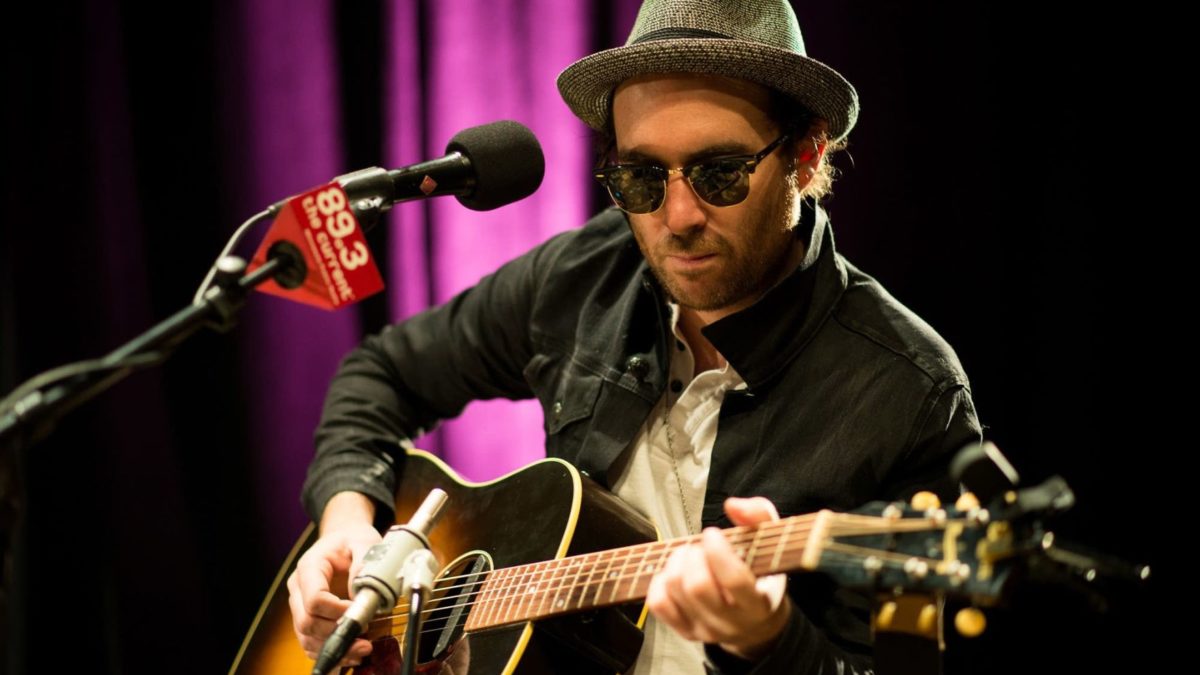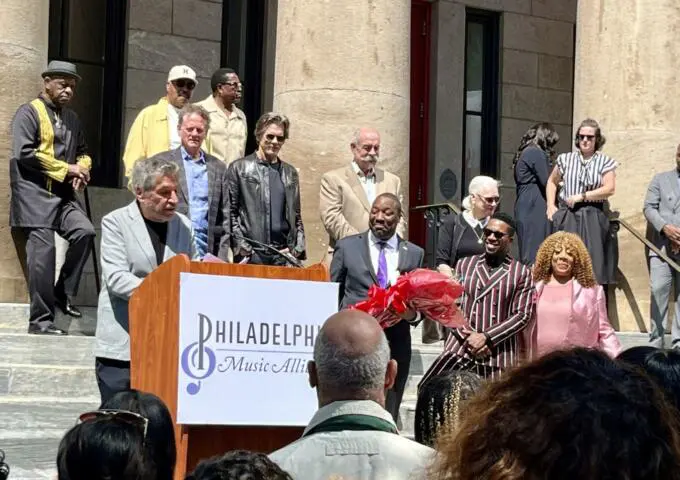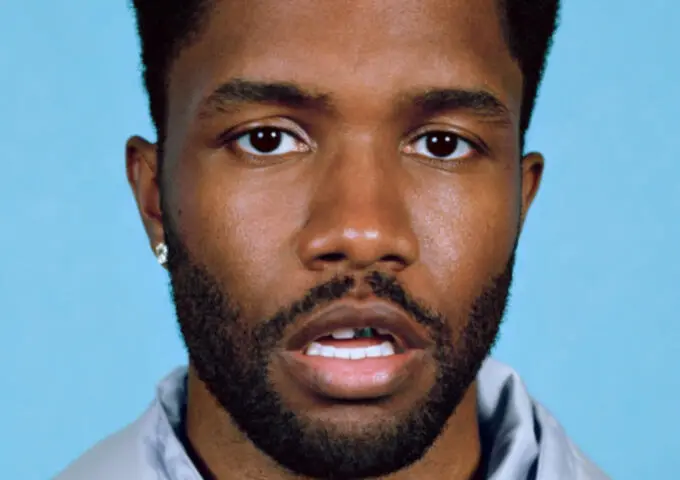Founder and lead guitarist of Canadian synth-pop-rock band Metric, James Shaw views Philadelphia as his “coming of age city.”
At 16 years old, Shaw gained admittance to Curtis Institute of Music, the city’s renowned conservatory that includes notable alumni, such as American composer Leonard Bernstein and American-Italian composer Gian Carlo Menotti. A trumpet-major, Shaw vividly remembers his adolescent days studying music and buying alcohol as a minor, something which he was never able to get away with in Canada.
“I went from the middle of high school and skipping class and smoking weed to living on my own in Rittenhouse Square and going to music school,” said Shaw, who also attended The Juilliard School. “I would go into a convenience store, buy a six-pack of Rolling Rock and go sit on the roof of my apartment building and look out at Rittenhouse Square.”
The musician and award-winning producer has returned to Philly for gigs, each time having the same sense of nostalgia.
“I have a really weird thing with Philly,” explained Shaw. “As soon as I get out of the tour bus, I remember the smell of Philadelphia. Like I grew up there because I kind of did have this moment of coming of age in that city. It has this extra special meaning for me that town.”
Ready to experience that visceral reaction once more, Shaw is coming back to Philly on Valentine’s Day to play at the Fillmore. Alongside lead singer, keyboardist, and songwriter Emily Haines, bassist Joshua Winstead and drummer Joules Scott-Key, Metric kicks off a 27-date national tour next week. Promote their seventh album, Art of the Doubt, which dropped in September, the concert will also feature openers Zoé and July Talk.
Metric fans wonder if the band, founded in 1998, will come to its close, especially with Haines’ solo career and Shaw’s ample production and contribution work for other artists and bands.
“The band works. The band is functional. We enjoy being in the band. There’s no reason for us to necessarily stop,” said Shaw. “But also the world is flooded with people, and there’s a whole other generation of music that is coming up underneath us. And it starts to feel a little bit like where is the relevance in where you are and what you’re trying to do and what you’re trying to accomplish.”
Outside of music, Shaw loves to cook and invites well-known musicians to his cabin up north for a meal. Shaw explained that invitees are expected to bring a vinyl record as a gift to add to his impressive collection. Shaw remembers receiving Neil Young’s 1986 album Landing on Water, which he claimed is “fucking terrible … unlistenable music.”
“It’s just beyond awful and yet it’s Neil Young,” Shaw said.
Shaw explained that Young was in the “middle of his career,” not yet the legendary Young or the newcomer who had to make every song a showstopper. The record was a realization for Shaw that he is in the middle of his career, positioned to take chances with his music and put out flop records.
“If you have a career at all, you have a beginning of your career. If you do well enough, you get to the middle of your career. And if you sustain the middle of your career, you become a legend, because no one sustains the middle of their career except the Neil Youngs of the world” Shaw theorized. “It’s weird that it took me seven records to get to the middle. But I feel now like my only job is to do everything in my power to experiment and learn, figure things out, try everything, don’t worry about what the world thinks, and just keep going with all of it until maybe I either reach legendary status or I die in a plane crash.”
As Shaw awaits either glory or demise, Philadelphia Weekly took the intermediary opportunity to ask about Art of the Doubt and other insights into Metric.
What was the thought process behind Art of the Doubt as a record and as the title song?
I think what we were toying around with conceptually was the idea that the questioning process, the sort of the doubting process, the idea that everything isn’t perfect and it’s the sort of nuance of where things lie in the cracks that is the beauty of being an edge.
It’s the idea that something that’s completely assured isn’t doesn’t really have the complexity that things that don’t have. The idea that when you’re when you’re creating something, when you’re crafting something, it’s sort of where you’re where your mind goes to what’s possible and what’s not possible, where you start to doubt things that things start to get interesting. We all know two plus two equals four but we don’t know is what we find interesting. And I think part of the process that we’ve been drawn to after all of these years is what we don’t know and what we’re not completely assured of. I think that’s kind of where we were starting to explore on this record and starting to allow ourselves to make more mistakes and be rough around the edges and just sort of trust the output instead of instead of doubting so much.
This is Metric’s seventh album. How do you think the sound compares to the past six?
When we started like you know in the house in the woods and we went forward and we went forward through the woods and then forwards through the town and forward through the city and this time around for some reason it kind of feels like we took all of that knowledge and all of that experience and went back to the house in the woods and then forged an entirely new direction again.
So it kind of feels a little bit like we revisited everything we’ve ever done while trying to make something new. And I think it has this really weird like if you’ve been a metric man for a long time and you don’t hold the record then it kind of has this eerie familiarity like you’ve heard all of this before. But it also kind of has this like, “But I know that I haven’t heard this before. It’s kind of a newer, fresher sound for these guys.”
I think Metric has always gotten a lot of attention for its juxtaposition between gravitas lyrics and uplifting melody, a possible play on perception versus reality. How do you respond to that understanding of the music?
That’s Emily in a nutshell. Emily is an extremely depressing uplifting person. She is constantly dealing with the depths of where the human mind could go while being extremely energized and moving forward. She’s someone who’s always been energized by being in touch with the dark side of things. For her, just a general sort of happy-go-lucky brings her no energy at all. So I think that lyrically, one of the things that makes the band the band is the fact that in the beginning she took these kinds of sad songs and brought them to me and I bumped them and put a dance beat behind it and made things be a rock band.
Twenty years later, it’s like we’re still doing that same thing. I think she’s found a lot of energy in that and if you see our live show, there’s a lot of energy. I think she’s trying to get across the idea that just because things are dark or frustrating or I think depression is really the wrong word because depressing takes the energy out of something, but if there is anger in it then that’s okay and you can use all of that fuel to get through those things. And I think that’s kind of why there’s a darkness to her lyrics but there is an energy to the music, because I think she uses the energy to get through the darkness.
A lot of attention has been paid to Art of the Doubt’s “Now or Never Now,” “Underline the Black” and “Dress to Suppress.” But is there a song that you think is undervalued on the album?
When you close your record you’re not going to close it with something underwhelming but you gotta use something powerful to close a record. But at the same time, you’re putting it last which means that most people are never gonna get that. And so for me “No Lights on the Horizon” is my favorite tune, and I think it’ll probably be the one that gets the most undervalued like that should be that should be the song. If I die tomorrow, I’d like to be remembered for that song.
Now you’re touring the album, but you just finished a summer tour with Smashing Pumpkins. How was that experience?
It was weird. I mean it’s Billy Corgan, so I’m not gonna be like, “Oh my God it was the most normal summer of my life,” because no, I would be lying. They are a weird band, it was really intense. They played for like three hours and it was like a total honor to be on the tour, it really was, like they are a seminal band, and it was a big comeback tour for them. So I was really happy to be offered the gig. But it was a weird one, we were playing at like 7 p.m., I don’t like playing at 7 p.m.
It’s like four o’clock is when nothing happens and 7 is when things start to happen. But you can’t keep your energy at 7 p.m. And so we’re sort of like off stage at 7:45 and in a restaurant at 8:30. So it was kind of like tour but it was kind of like I was working for Travel and Leisure Magazine.
We have done a lot of those tours. We have opened for Muse, Imagine Dragons, Paramore. We have done a bunch of that stuff.
Is there a band you would want to do a repeat tour with?
No. Not really.
Well, you’re being honest.
I’m always honest. I’ll give you that.
But you’re not opening for anyone when you come to the Fillmore on Valentine’s Day. Do you think the concert can fit in with the holiday?
We’re not really one for like playing up to holidays. I think we played in Berlin on Halloween last year and it’s not like we come out in costume. So I think that will probably ignore the Hallmark version of that day and just go straight forward into a Metric show. If you want to bring a date, bring the date.
I hope more people have sex after our show in Philadelphia than they normally do. That would be great.
TWITTER: @ANDREAJCANTOR




